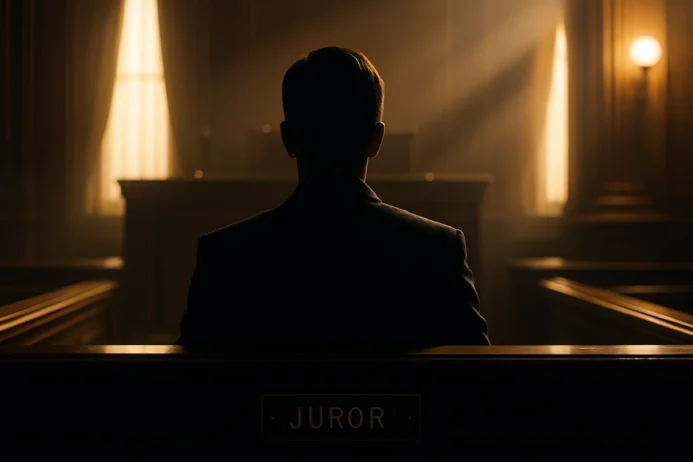🕒 Last Updated on September 16, 2025, 12:06 PM EDT
When you think of a courtroom, the spotlight often shines on the judge, lawyers, or even the defendant. But in reality, one of the most powerful roles belongs to the jurors — everyday citizens whose decisions can change lives forever.
What Does a Juror Do?
A juror’s responsibility is simple on paper but complex in practice: listen to the evidence, deliberate fairly, and reach a verdict.
- Jurors must remain unbiased, even when emotions run high.
- They can’t rely on outside opinions or media coverage.
- Their final decision often decides the outcome of the case — guilty, not guilty, or in some cases, a mistrial.
Why the Role Is So Important
The American justice system rests heavily on the idea of a “jury of your peers.” That means ordinary people, not legal experts, hold the power in many trials.
- One juror’s doubt can shift the entire verdict.
- Unanimity is required in many serious cases, which makes every voice matter.
- High-profile cases often highlight how much influence jurors really have.
Recent Controversies Around Jurors
Lately, headlines have shown how juror roles are under scrutiny. From cases involving alleged juror bias due to outside communication (like text messages) to debates about whether jury trials remain effective, the discussion is louder than ever.
“The integrity of jurors determines the integrity of the entire trial,” noted one legal expert.
Famous Moments in Jury History
| Year | Case | Why Jurors Mattered |
|---|---|---|
| 1995 | O.J. Simpson Trial | Jurors’ decision shocked the nation |
| 2011 | Casey Anthony Trial | Jurors acquitted despite heavy public opinion |
| 2025 | Ongoing debates | Technology and media influence jurors more than ever |
FAQs
u003cstrongu003eQ. What is the role of a juror?u003c/strongu003e
To listen to evidence, deliberate with fellow jurors, and reach a fair verdict.
u003cstrongu003eQ. Why is one juror so powerful?u003c/strongu003e
Because in many trials, decisions must be unanimous — one dissenting juror can change the outcome.
u003cstrongu003eQ. What are the challenges of being a juror?u003c/strongu003e
Staying unbiased, avoiding outside influence, and handling the emotional weight of making life-altering decisions.
u003cstrongu003eQ. Are jury trials still relevant today?u003c/strongu003e
Yes, though debates continue about whether technology and public opinion make it harder for jurors to stay impartial.

